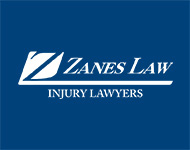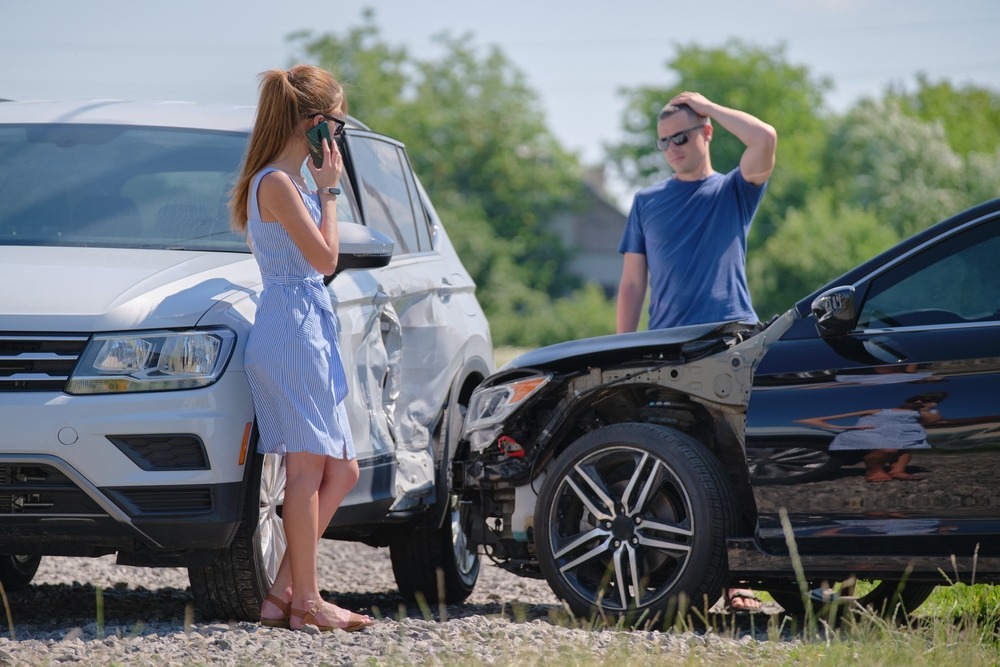![]() Contact Us (866) 499-8989
Contact Us (866) 499-8989
Should I Admit Fault for a Car Accident in Phoenix, AZ?
- Why Shouldn’t I Admit Fault After an Accident?
- What Should I Do After a Car Accident?
- Home
- FAQs
- Car Accidents
- Should I Admit Fault for a Car Accident in Phoenix, AZ?
Being in a car accident and sustaining serious injuries can wind up costing you a great deal of money. Besides the medical costs, lost wages, and pain and suffering, if your insurance company believes the accident was your responsibility, your insurance premiums can substantially increase. Besides the financial losses you may incur, there are civil penalties such as a license suspension or mandatory driver education classes. For intentional reckless driving, criminal penalties are included, such as fines and incarceration.
Why Shouldn’t I Admit Fault After an Accident?
There are several reasons why admitting fault for an accident is not a good idea, including:
- You may think you are at fault but be unaware of the other factors that impact liability in a car accident such as weather, road conditions, time of day or night, and the condition of the car and tires.
- If you admit fault to anyone at the scene of the accident, your admission can be used to deny your claim or decrease the amount of compensation you may be awarded. Anything that you say can be held against you at a later time.
- Insurance companies do not recommend admitting fault in an accident because it may invalidate your policy.
- Admitting fault for an accident and then denying it afterward can be considered perjury.
- You may be unaware that another driver contributed to the accident by their reckless, negligent, or unlawful behavior.
- Police officers are generally responsible for doing a police report after the accident and may indicate who was at-fault for the accident based on their professional assessment.
It is important not to make a recorded statement with the other driver’s insurance company until you consult with an attorney. Insurers will use what you say to try and prove that the accident was your fault and not the fault of their policy holder. An attorney can help you prepare for any communication between you and the other party’s insurance company.
For a free legal consultation, call (866) 499-8989
Comparative Negligence
Arizona looks at car accident compensation through the lens of pure comparative negligence. This means that a driver can receive compensation for a car accident even if they are at fault for some percentage of the accident. An example of this might be a person that runs a red light and hits another car. The driver of the car that was hit by the car that ran the red light may be entitled to compensation in the amount of $100,000 to cover the cost of his medical expenses, lost wages, and physical therapy. However, if it was found that the driver that was hit had been speeding at the time of the accident, he may be judged to be 25 percent responsible for the accident. In that case, the driver that was hit would be entitled to receive $75,000.
What Should I Do After a Car Accident?
Generally, if you were in a car accident, it would be best to:
- Say nothing about whose fault the accident was;
- Avoid apologizing for the accident;
- Be cooperative with police but keep your answers short and refrain from offering any additional information;
- Refrain from engaging in small talk with the insurance adjuster;
- Refrain from signing a medical release so that the insurance company won’t be able to go through your file;
- Do not give a recorded statement to the insurance adjuster because a written statement gives you more time to prepare the responses; and,
- Speak to an attorney before you sign anything.
If you have been injured in an accident in Phoenix, AZ, you may wish to find a car accident lawyer that will help you file a claim and provide effective legal representation. Call Zanes Law in Phoenix, AZ at (833)890-8329. You shouldn’t have to go through this alone, and we want to help.
Call or text (866) 499-8989 or complete a
Free Case Evaluation form
 Why Bruce Jenner’s Accident is a Lesson for ALL Drivers Out There
Why Bruce Jenner’s Accident is a Lesson for ALL Drivers Out There
Every media outlet has a scope on the recent and fatal Bruce Jenner car crash. Many accounts have recalled the incident in varying detail but none look promising for any party involved including the
 Phoenix Light Rail Crash
Phoenix Light Rail Crash
A very major and scary crash recently closed down a major Central and Indian School Road intersection. Although the crash has long been cleared since Saturday, the collision between a
 Tracy Morgan Lawsuit Finally Settles
Tracy Morgan Lawsuit Finally Settles
Many fans of the famous (now ended) sitcom, 30 Rock, anxiously followed the news after beloved actor and comedian Tracy Morgan was involved in a trucking accident. A Walmart tractor-trailer
 And Then It Happens To You… A Car Accident.
And Then It Happens To You… A Car Accident.
An accident victim who was injured in a car accident in Tucson, Arizona describes her experience in this guest post. You hear about them all the time. You have even witnessed some right in
Wrongful Death Blog Posts:
Receive a Free, No-Obligation, Case Evaluation Now



